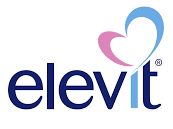
The Relevance of Healthy Foods on the Human Body
Most people consider nutrition as just a routine; for some others, it is just a ritual or perhaps fun. However, a larger percentage of us quickly see nutrition as necessary to satisfy the craves of hunger. Undoubtedly, with the rapidly increasing number of fast -food in today's society, we have become exposed to solid fats, added sugars, refined grains, and saturated fats. In addition, only a few adults pay proper attention to recommended healthy fruits and enough vegetables in their eating plan.
Healthy foods is indeed “good health” itself because anything short of good nutrition is detrimental to life. We must always realize that the need for food transcends beyond fun or survival. Since we are no mechanical robots, our body relies on healthy foods to grow new cells, maintain normal body function, and produce the energy needed for activities. In the long run, healthy eating is nature's privilege given to us to take care of the human body.
More so, the elderly demand balanced diets with essential nutrients to help maintain muscle and skin tissues. Recuperating patients, on the order hand, require healthy foods to facilitate the healing of wounds.
Overall, living a healthy lifestyle depends on how well you imbibe purposeful nutrition and physical activity in your daily life.
The role of nutrition is also beyond a treat for us as enthusiastic connoisseurs. It's a practice to cater for our overall welfare.
Healthy eating greatly influences our present and future moods as well as our body's biological performances; metabolism is one example in this regard. Essential nutrients help stimulate energy production, promote growth and health, and help regulate metabolism. In contrast, unhealthy eating habits contribute to weight gain and risk of chronic diseases such as heart conditions, hypertension (high blood pressure) , type 2 diabetes, osteoporosis, and some types of cancer.
Mindful Eating Vs. Intuitive Nutrition
The link between good nutrition and overall health is too important to ignore. Most adults are vulnerable to suffer nutritional deficiencies because of their busy and overstretched schedules. This is however, due to their lack of access to healthy planned, well-rounded meals. Practically, at the dusk of the day's tiresome job, when hits hunger; they often go with whatever the head dictates or what the heart pleases-intuitive nutrition.
Well, the first step to healthy nutrition is developing a mindful eating culture. Doing this primarily requires your knowledge and appreciation of key nutritional rudiments such as the scope of low-fat diet, low-calorie snacks, healthy fruits, and even weight loss diet -It's much easier than you think! Mindful eating is just but a personal habit that rapidly evolves with you.
Starting a healthy meal plan is an easy way to practice mindful nutrition. This way, you can consciously plan the recipes, groceries, and your budget all to an end of preparing a balanced diet for your body. Healthy meal planning may seem like a daunting task, but I guarantee you it is worth the stress. Here are six fundamental nutrients you should be considering in your healthy eating plan.
CARBOHYDRATE: carbohydrate is a primary source of energy to the body and should consist of virtually 60% of our diet. It also helps the body with fiber, which in turn assists in bowel elimination. Secondarily, carbohydrate supplies the body with extra protein and stimulates the breakdown of fat. Good sources include cereals, pasta, wheat, sugars, sweets, and potatoes. Some medical conditions may also demand that you purchase food items with only low-carb for the sake of your health.
PROTEIN: proteins are bodybuilding foods responsible for cell development across the body. It promotes tissue growth and repair and also acts as a secondary source of energy to the body. You may be needing more protein for the development of your skin, hair, and muscles. Feel free to delineate a healthy eating plan with traces of proteinous sources like seafood, poultry, meat, eggs, milk, cheese, dried beans, and soy products.
FATS: Fats aren't bad as we think them to it be. Oftentimes, we despite fats due to the fear of weight gain; however, unsaturated fats are the best for the body. Fats help the body regulate temperature and maximizes the release of energy for athletes. They also act as protective cushions for our vital organs. Rich sources of facts include dairy products, meat, and fish, and margarine.
VITAMINS: vitamins are more like engine oils for the body to function. Since the body is unable to produce most vitamins, your meal plan must feature vitamin-rich recipes. Vitamins A, D, E, and K are examples of fat-soluble vitamins , while Vitamins B and C are water-soluble counterparts. Also, focus on fruits and vegetables as healthy multivitamins for Vitamins A, B, C, and D. In the alternative, you can leverage on beneficial vitamin supplements to forestall the risk of any vitamin deficiency .
MINERALS : like vitamins, minerals stimulate body functions and promote growth in body organs. Iron, for instance, assists the body with more energy. Calcium also aids in the development of stronger bone and teeth. So, always ensure that your meal plan should focus on vital minerals such as iron, calcium, iodine, potassium, and sodium.
Last Note
Mindful eating is all about nutrition with a purpose. It is also impossible to separate “good health” from strategic meal planning and the intake of healthy foods. Apart from imbibing a healthy eating plan, always skim the labels of products for a healthy combination of carbs, protein, vitamins, and other nutrients. Always remember your body deserves more mindful nutrition.
Author. Michael F. O
Michael F.O is a ravenous health writer with over five years of experience. He has to himself a chain of certification ranging from a university degree in Biochemistry to other professional honours. He has to himself a chain of certification ranging from a university degree in Biochemistry to other professional honors.
































































